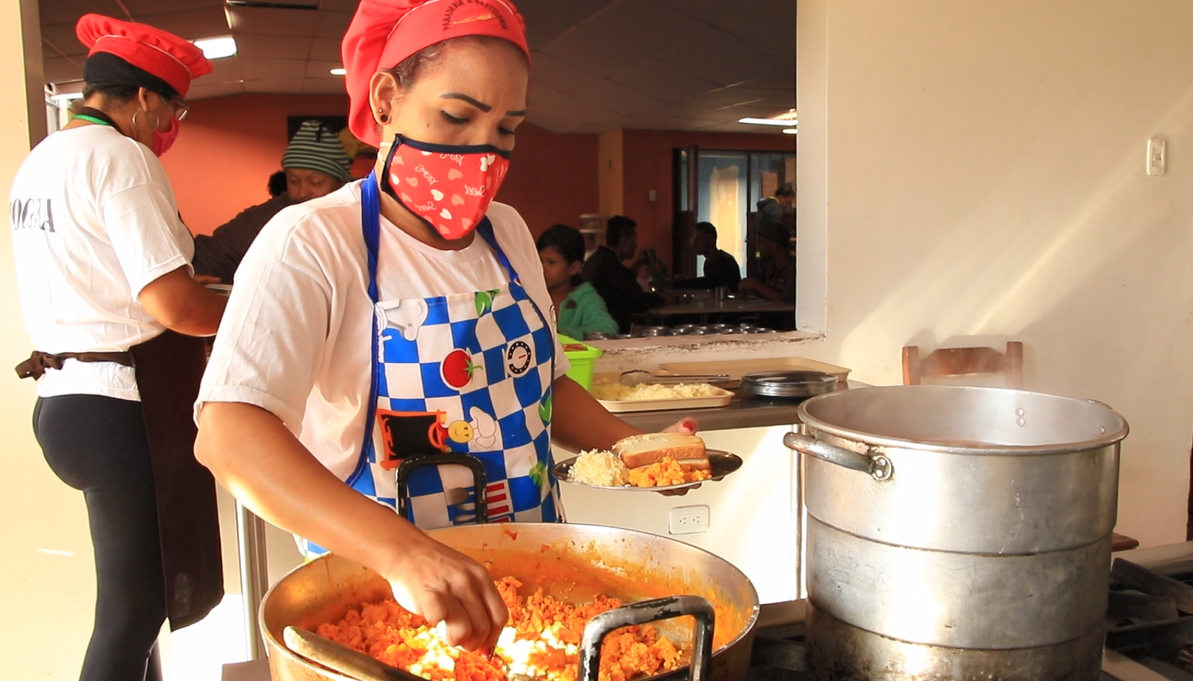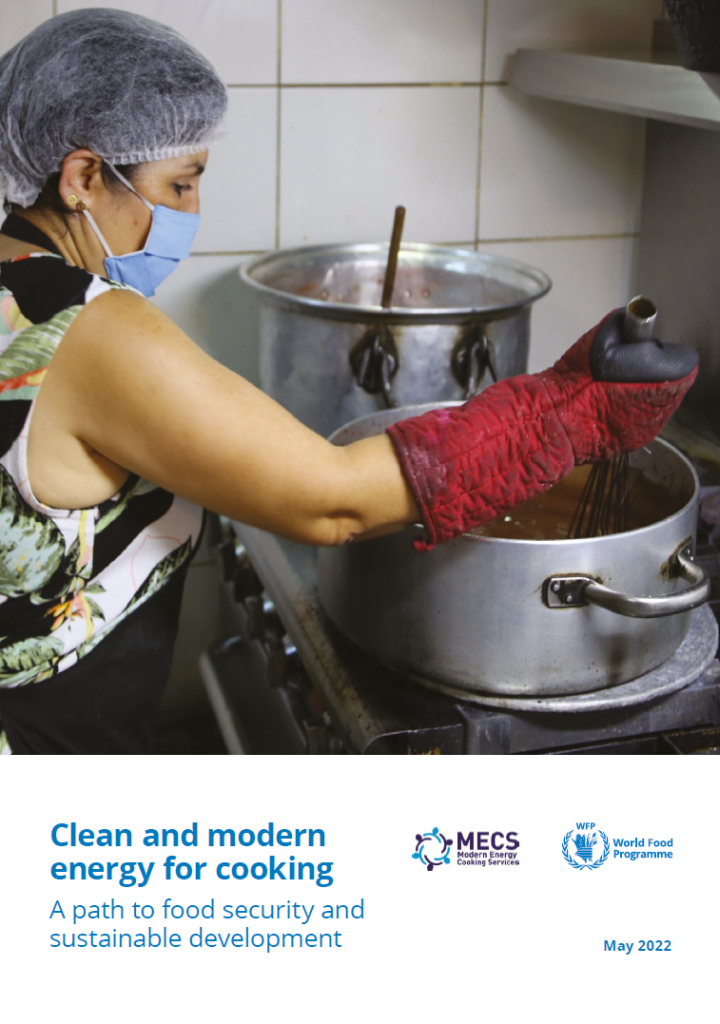
- Date
- 13th June 2022
- Categories
- General

The recently released ‘Tracking SDG7 – The Energy Progress Report 2022’ (World Bank, 2022) estimates that approximately 2.4 billion people still cook using fuels detrimental to their health and the environment. Additionally, fuel collection and meal preparation using biomass is time consuming, labour intensive and unsafe – often disproportionately affecting women and girls.
In this position paper, the Modern Energy Cooking Services (MECS) programme jointly with the World Food Programme (WFP) demonstrate how ensuring access to safe, sustainable and accessible cooking fuels and technologies for households, institutions (like schools) and businesses is essential to address energy poverty and food security, and to pave the way for sustainable development. In particular, access to energy for cooking plays a critical role in WFP’s mandate to achieve zero hunger by delivering food assistance in emergencies and working with communities to improve nutrition and build resilience. Energy access is not only needed to prepare the food that WFP distributes, as most of it requires cooking in order to be consumed, but is also a driver for socioeconomic transformation as it underpins the success of several other Sustainable Development Goals (SDGs). For example, clean and modern cooking impacts SDG3 on health by reducing or eliminating exposure to smoke (WHO, 2021); SDG4 on education creating cleaner study environments for children and reducing time-poverty resulting from fuel collection (Frempong et al., 2021; IEA et al., 2019); SDG8 on economic growth by saving time (UNESCAP, 2021) and money (Jagoe et al., 2020) that can be spent productively; and SDG16 on peace by reducing the instances of conflict when collecting cooking fuel in situations of scarcity (GACC, 2016).
The paper gives an overview of the different cooking contexts and settings, the range of cooking systems and energy delivery models, and offers examples of WFP’s initiatives where clean and modern energy for cooking has been implemented to boost households’ and schools’ food security and resilience. It concludes by highlighting the role WFP plays in raising awareness around clean and modern cooking solutions and their benefits, and in building end users’ capacity to increase adoption in order to reach the ambitions of sustainable development over the next decade and beyond.
……………………………
Featured image: Paola Solis, World Food Programme, 2022.
